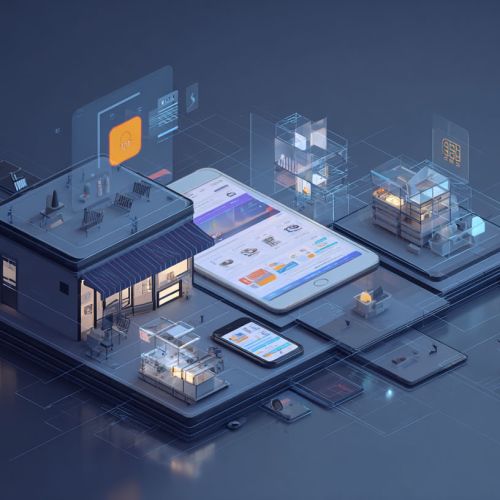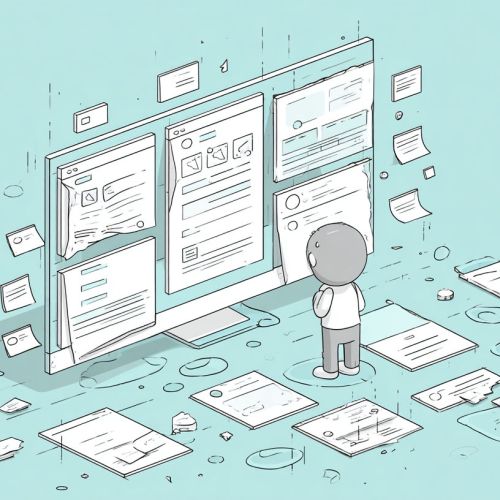In today’s hyper-competitive digital landscape, marketing leaders are constantly seeking innovative ways to capture customer attention, drive engagement, and increase conversion rates. AI-powered personalization is an intelligent approach that uses advanced algorithms to tailor marketing messages, product recommendations, and user experiences in real-time, making each interaction uniquely relevant. This next frontier in digital marketing is rapidly evolving, offering unprecedented opportunities to deepen consumer relationships and maximize ROI.
For CEOs, CMOs, and marketing directors, understanding how to leverage AI-driven solutions like dynamic email personalization, machine learning-based product recommendations, chatbot personalization strategies, and hyper-personalization platforms is essential for staying ahead. This article explores how these technologies work, the impact they have on business outcomes, and strategic best practices to implement AI-powered personalization effectively within your marketing ecosystem.
Understanding AI-Powered Personalization in Digital Marketing
At its core, AI-powered personalization leverages artificial intelligence and machine learning to analyze vast amounts of customer data and deliver highly relevant marketing content, offers, and experiences. Unlike traditional segmentation, AI personalization operates at an individual level, dynamically adapting to behavioral signals, preferences, and context in real-time.
Key facets include:
- 1:1 data-driven marketing personalization: Moving beyond broad personas to truly individual engagements.
- Machine learning-based product recommendations: Suggesting products customers are most likely to buy based on past behavior and lookalike models.
- AI-driven dynamic email personalization: Tailoring email content, timing, and frequency to each subscriber for maximum impact.
- Chatbot personalization strategies: Using conversational AI to provide custom responses and upsell opportunities.
- Hyper-personalization platforms: Integrated tech stacks that orchestrate personalized experiences across multiple channels.
Why AI-Powered Personalization is a Game-Changer
Conventional personalization methods often rely on static segments or rules-based marketing, which can feel generic and disconnected as customers expect seamless, relevant experiences throughout their journey. AI-powered personalization technology transforms this by:
- Enhancing customer engagement: Relevant content increases open rates, click-throughs, and time on site.
- Boosting conversion rates: Personalized product recommendations increase average order value and reduce cart abandonment.
- Increasing retention and loyalty: Tailored communications make customers feel valued, encouraging repeat business.
- Optimizing marketing spend: AI predicts the best channel, messaging, and timing, improving budget efficiency.
According to a study by Salesforce, 84% of customers say being treated like a person, not a number, is very important to winning their business—underscoring the critical need for personalized marketing at scale.
Harnessing AI-Driven Dynamic Email Personalization
Email marketing remains one of the highest ROI channels, and AI-powered dynamic email personalization unlocks its full potential by offering:
- Adaptive content blocks: Emails dynamically populate with products, offers, and messages based on real-time user data.
- Send time optimization: AI algorithms identify when each recipient is most likely to engage.
- Subject line and copy personalization: Tailoring tone and language to individual preferences.
- Behavioral triggers: Automated drip campaigns activated by browsing or purchase behaviors.
Brands using AI-driven dynamic email personalization often see up to double the open rates and 30% higher conversion rates compared to generic blasts. For example, e-commerce leaders employ AI to recommend complementary or trending products within emails, resulting in significant upsell opportunities.
Improving Customer Experiences with Machine Learning-Based Product Recommendations
Machine learning-based product recommendations are a cornerstone of AI-powered personalization. By analyzing purchasing history, browsing habits, search queries, and even social signals, AI algorithms autonomously identify and serve products that resonate most with individual customers.
Types of recommendations include:
- Collaborative filtering: Recommending items based on similar users’ preferences.
- Content-based filtering: Suggesting products similar to those a customer already showed interest in.
- Contextual recommendations: Factoring in time, location, or seasonal trends dynamically.
Leading retailers using such strategies report increases in average order values of 10-30%. This is why integrating AI-driven product recommendation engines into e-commerce platforms has become standard practice.
Chatbot Personalization Strategies: Enhancing Engagement and Conversion
Chatbots powered by AI have evolved beyond scripted FAQs to deliver rich, context-aware conversations. Employing chatbot personalization strategies allows brands to:
- Recognize returning customers and recall past interactions.
- Deliver personalized product suggestions and promotions in-chat.
- Guide users through complex decision trees tailored to specific needs.
- Collect real-time feedback to continuously improve personalization algorithms.
These intelligent chatbots improve customer service efficiency while delivering a one-on-one experience, critical for increasing satisfaction and conversions. For example, a personalized chatbot on a retail site can proactively offer a discount on an item a customer has viewed multiple times.
Leveraging Hyper-Personalization Platforms for Omnichannel Experiences
Hyper-personalization platforms integrate AI-powered personalization engines with data management, automation, and analytics tools. They create consistent, real-time customized experiences across all customer touchpoints: web, mobile, email, social media, and in-store interactions.
Key benefits include:
- Centralized customer data platform (CDP) for unified profiles.
- Cross-channel orchestration ensuring messages are coherent and non-repetitive.
- Automated campaign adjustments based on performance metrics.
- Advanced audience segmentation powered by AI analytics.
Implementing hyper-personalization platforms empowers marketing teams to deliver relevant experiences that anticipate customer needs and preferences seamlessly.
Implementing AI-Powered Personalization: Best Practices for Marketing Leadership
For senior marketing leaders ready to adopt AI-powered personalization technologies, consider these strategic steps:
- Assess your data infrastructure: Ensure clean, rich, and accessible customer data.
- Choose scalable AI platforms: Select tools aligned with your marketing goals and tech stack.
- Start with pilot projects: Test AI-driven dynamic email personalization or product recommendations before full roll-out.
- Prioritize customer privacy: Comply with regulations such as GDPR and CCPA while personalizing.
- Align marketing and IT teams: Foster collaboration to integrate AI solutions smoothly.
- Continuously measure and optimize: Use AI analytics to refine personalization strategy over time.
These foundational best practices ensure AI-powered personalization initiatives are effective, compliant, and scalable.
The Future Outlook: AI-Powered Personalization Beyond 2024
AI-powered personalization continues to evolve rapidly with advances like generative AI creating hyper-relevant content, voice-activated assistants enabling conversational marketing, and augmented reality offering immersive personalized experiences.
Marketing leaders who master these emerging technologies will gain significant competitive advantages by cultivating deeper customer intimacy and agility in campaign delivery.
According to Gartner, by 2025, 80% of all digital marketing campaigns will incorporate some form of AI personalization, highlighting this technology’s growing prominence.
Key Takeaways
- AI-powered personalization delivers individualized marketing experiences that significantly boost engagement and conversions.
- AI-driven dynamic email personalization enables marketers to tailor content, timing, and offers for each subscriber.
- Machine learning-based product recommendations increase average order values by predicting customer preferences effectively.
- Chatbot personalization strategies improve customer satisfaction through context-aware, conversational interactions.
- Hyper-personalization platforms unify customer data and orchestrate seamless, omnichannel experiences.
Ready to future-proof your marketing strategy with AI-powered personalization? Request a consultation with our AI marketing experts today.






